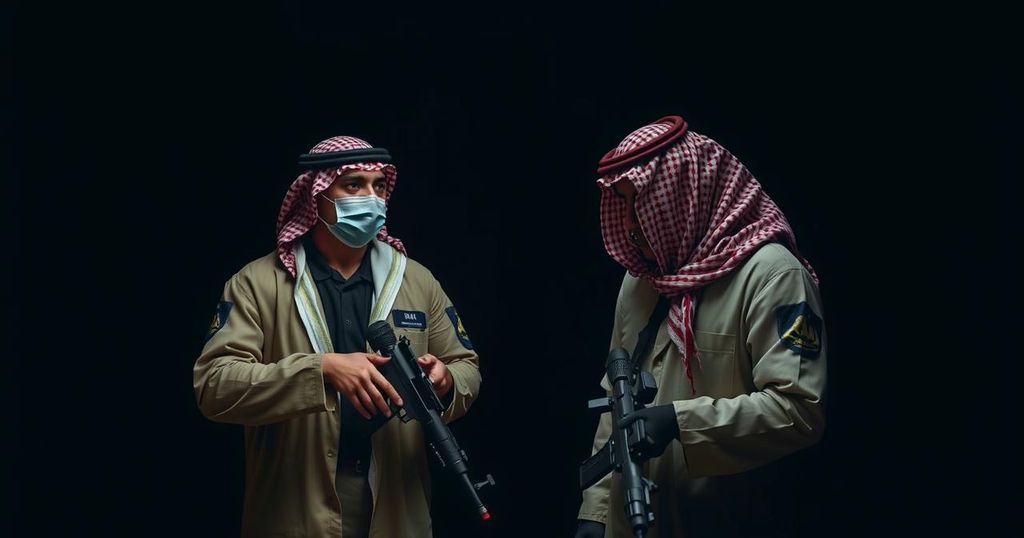In an interview with The Jerusalem Post, Dr. Einat Wilf criticized Qatar’s role in supporting Hamas, arguing that it poses a significant threat to Israeli security and regional stability. She asserted that Qatar’s involvement enables Hamas to maintain military capabilities and influence, particularly through media manipulation. Wilf called for a reevaluation of Israel’s relationship with Qatar, emphasizing the need for stronger pressure on Doha and a unified public stance against its perceptions as a mediator.
In a recent interview with The Jerusalem Post, Dr. Einat Wilf, an Israeli political scientist and former Knesset member, expressed her views on Qatar’s role in the Israeli-Palestinian conflict, asserting that Qatar’s support for Hamas constitutes a severe threat to regional stability. Wilf emphasized that Qatar’s involvement in backing Hamas has allowed the group to maintain its military capabilities and power in Gaza, justifying her statement, “Qatar is not our friend. Qatar and Hamas are one and the same.” Wilf highlighted that Qatar has significantly contributed to the rise of Hamas’ military strength, enabling the group to launch attacks against Israel, including the recent invasion on October 7th. She criticized the notion that Hamas has incurred sufficient consequences for its actions, citing that despite Hamas’s operational losses, external support, primarily from Qatar, allows them to quickly rebuild their capabilities. Wilf argued, “As long as Hamas remains in power in Gaza, we haven’t achieved anything, and it will keep on terrorizing our citizens.” Furthermore, Dr. Wilf scrutinized Qatar’s media influence, particularly via Al Jazeera, which she claims plays a critical role in promoting a narrative against Israel. She contends, “Al Jazeera is a crucial part of Qatar’s arsenal against the political existence of Israel,” and has successfully propagated antisemitic themes that appeal to various ideological groups in the West. Wilf posited that Qatar’s manipulation of media narratives has enabled them to evade accountability for their propaganda efforts. Addressing the sensitive issue of hostages, Dr. Wilf condemned the normalization of negotiations surrounding their release, questioning the rationale behind treating the hostage crisis as a negotiable scenario. She stated, “The hostages are being held by Qatar as much as by Hamas,” emphasizing that both entities share responsibility for the plight of the victims. Wilf argued that instead of viewing Qatar as a mediator, Israel should have recognized it as an adversary and pressured it to sever ties with Hamas. She regretted Israel’s missed opportunity to shift international perceptions regarding Qatar’s role in the hostage crisis, suggesting that stronger public relations initiatives and direct appeals to foreign governments could have generated greater global accountability. Throughout the discussion, Wilf compared Qatar’s role to that of UNRWA, which she believes perpetuates the refugee issue, asserting that both share a propensity for destabilizing Israeli security. She concluded by advocating for a significant shift in Israeli policy towards Qatar, urging citizens to mobilize public opinion and demand action from their elected officials, emphasizing, “As long as Qatar continues to enable Hamas and prop up its rule in Gaza, we will be stuck in a cycle of violence and instability.”
Dr. Einat Wilf’s comments during her interview with The Jerusalem Post highlight the ongoing complexities in the Israeli-Palestinian conflict, particularly focusing on Qatar’s controversial support for Hamas. Her insights suggest a deeper examination of Qatar’s dual role, not only as a perceived mediator but as a contributor to the continuous instability in the region. This analysis is framed within the context of recent events, including Hamas’s military actions against Israel and the implications for hostages caught in the conflict. Wilf’s advocacy for a reevaluation of Qatar’s status vis-a-vis Israeli policy calls for a proactive public and governmental response to perceived threats.
Overall, Dr. Einat Wilf’s interview presents a compelling case against the characterization of Qatar as a neutral mediator in the ongoing Israeli-Palestinian conflict. By linking Qatar’s support to the empowerment of Hamas, she calls for reevaluating diplomatic approaches towards Doha. Her advocacy for public mobilization and governmental accountability underscores the urgent necessity to confront the dynamics that perpetuate violence and instability in the region. Wilf’s insights induce a fundamental reconsideration of Qatar’s relationship with Israel and the broader implications for peace and security in the Middle East.
Original Source: m.jpost.com







